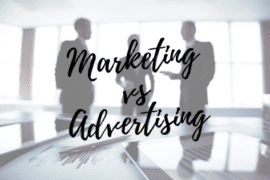A marketing concept is a strategy that firms effectively implement to remain competitive by increasing sales, maximizing profits, and aiming to satisfy customer needs etcetera.
Table of Contents
The 5 Marketing Concepts
There are five marketing concepts that organizations make use of, these include:
- Production Concept
- Product Concept
- Selling Concept
- Marketing Concept
- Societal Marketing Concept
Production Concept:
This being a very orthodox concept implies that consumers will prefer goods that are available and inexpensive or whose demand is elastic. At times, firms that rely too heavily on this concept lose sight of the bigger pictures in terms of varying demand patterns and preferences and focus too narrowly on just their own operations; this leads to market myopia. The company ends up focusing on production and distribution and increasing output and decreasing costs.
Companies that manufacture their goods overseas are an example of the production concept as this decreases costs and savings are passed on to consumers. This could also help in acquiring new customers who are price sensitive.
Product Concept:
According to theory, consumers favor products having a good quality and innovative features and seek the best of what is being offered in the current market. Companies then focus on continuous improvement and technological advance if it’s the technology company. Samsung is one such example, it introduced the Note in 2011 and has been introducing newer versions ever since.
Despite the debacle of the Note 7, it recalled the product while focusing on customer service and introduced a better version the following year. Now Samsung Note 9 is expected to hit the shelves soon that would definitely attract the product savvy and brand loyal consumer.
Selling Concept:
According to this marketing concept, it is assumed that consumers only buy enough of the company’s products if it puts in large scale promotional efforts. This could also be a concept made use of when the product has reached past its maturity stage or is at the decline stage, where extension strategies are needed.
The focus here is on creating more sales transactions as opposed to long-term profitable customer relationships. It’s based on the company’s need to sell rather than the end consumer’s need to purchase.
A product may not be needed as such but strong marketing and selling tactics may persuade a consumer to buy it, for examples a clearance sale on garments that may be nearing obsolescence as a result of new trends in fashion.
Marketing Concept:
This concept is rather complicated from the rest as it may seem to focus on a holistic view of the marketing concept but with a clear focus on consumer wants. According to the marketing concept, the emphasis is on achieving organizational goals while at the same time keeping a keen focus on understanding consumer needs and wants and thus satisfying them better than competitors.
The company uses a consumer-centric approach while generating sales and maintaining profitability. It focuses on generating products through customer satisfaction contrary to the selling concept that focuses on generating profits through sales volumes.
Societal Marketing Concept:
It focuses on delivering value to customers while simultaneously adopting strategies for the customers’ and the society’s well-being. This form of sustainable marketing is future-oriented that aims to enhance the ability of future generations to meet their wants and needs while leaving a negligible carbon footprint behind.
For example, companies are moving towards more environmentally friendly products especially considering the extent of plastic pollution on land and in oceans. 10% of the plastic ends up in the ocean out of the 260 million tonnes produced each year.
Companies are switching to environmentally friendly alternatives, one such example is the eco-friendly paper straw.






